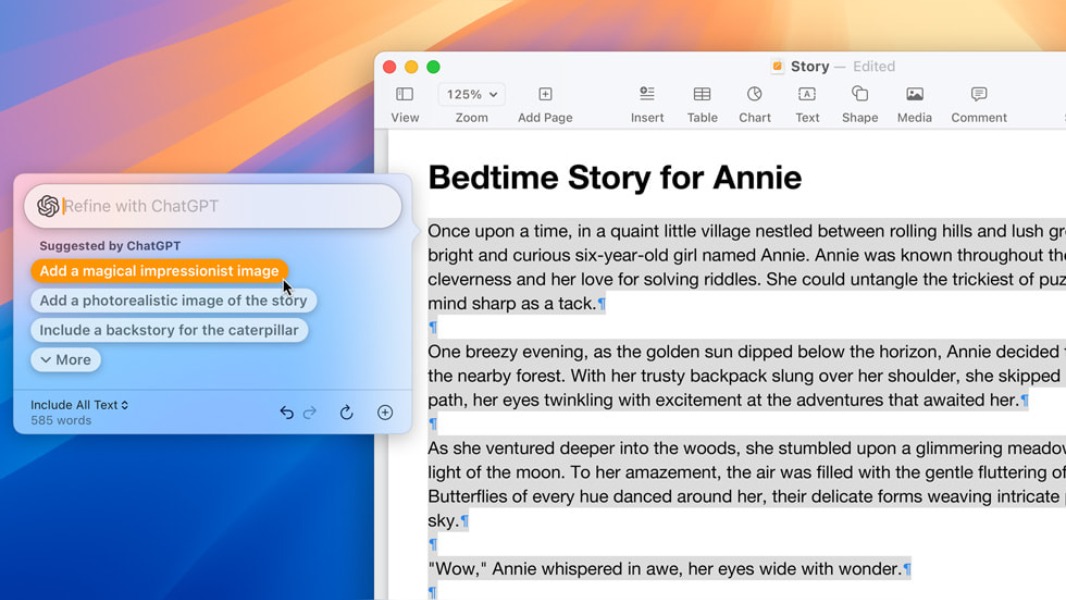Credit: Anna Samoylova via Unsplash
Brands, while embracing the use of AI themselves, are concerned about how agencies are using machine intelligence on their behalf and want changes in contracts to protect them.
Research from the World Federation of Advertisers (WFA) shows 80% of multinational brand owners have expressed concerns about how creative and media agency partners are using generative AI.
Global advertising agencies are engaged in a form of arms race, investing hard to integrate AI into creative production and in media planning.
WPP is spending £250 million (AUD480 million) each year on AI, which the group believes will enhance, not replace, human creativity.
The company sees an opportunity to sell AI-driven products and services and to capture more growth in areas such as production.
Sir Martin Sorrell, the founder of pure-play digital advertising group S4 Capital, believes the industry, and the wider economy, are about to experience a new industrial revolution.
Most brands admit a lack of maturity and capability in AI but they also express concern about how the technology is being used by agency partners and the risks this exposes them too.
“Ensuring that agency contracts are updated to address gen AI is an action every brand should take,” said Greg Paull, co-founder and principal of consultancy R3.
“Not only is it effective risk management, it’s an opportunity for marketers and their agencies to initiate important conversations about the role of AI in their partnerships.”
The WFA study — based on 54 responses from 48 of the world’s biggest companies, with a cumulative annual marketing spend of $102 billion — shows brands are concerned about legal (66%), ethical (51%) and reputation (49%) risks.
A third (36%) of companies surveyed have introduced terms prescribing how their partners can use generative AI on their behalf.
Only 29% have reviewed media and creative contracts with partners to introduce AI-related clauses.
However, almost half (48%) are planning to introduce terms and more than half are planning to review contracts (55%).
The primary motivation behind plans is to ensure compliance with data governance, introduce warranties and indemnities and ensure ownership of any creative output.
Only 9% off brand owners are reviewing contracts with creative talent (such as actors and voiceover artists), to provide for generative AI use in relation to their voice or likeness, but almost half (46%) are planning to.
Nearly two-thirds of brand owners (63%) are already using generative AI in their marketing strategies and the use of gen AI is rising, with usage well ahead of the 45% recorded by WFA research last year. In 2024 only 9% of brands say they have no current plans to use gen AI for their marketing.
The research is being released at the same time as WFA voluntary guidance, developed with marketing consultancy R3, on the steps brands could consider taking to mitigate the legal risks of gen AI in agency contracts.
Most brands are still at the early stages of their gen AI journey. A quarter (26%) claim to be “aware” (they use gen AI in sporadic, occasional way) and 58% claim to be at a “developing” stage (they have a dedicated gen AI strategy but it does not apply across all business units/teams).
“To harness the undisputed potential of gen AI, brands must first up get a grip on the legal and compliance implications,” said Stephan Loerke, WFA CEO.
“WFA’s AI Community and the guidance it’s producing will supercharge companies’ abilities to navigate the challenges so that they can prioritise the opportunities.”
A slide from the WFA survey:

Have something to say on this? Share your views in the comments section below. Or if you have a news story or tip-off, drop us a line at adnews@yaffa.com.au
Sign up to the AdNews newsletter, like us on Facebook or follow us on Twitter for breaking stories and campaigns throughout the day.





